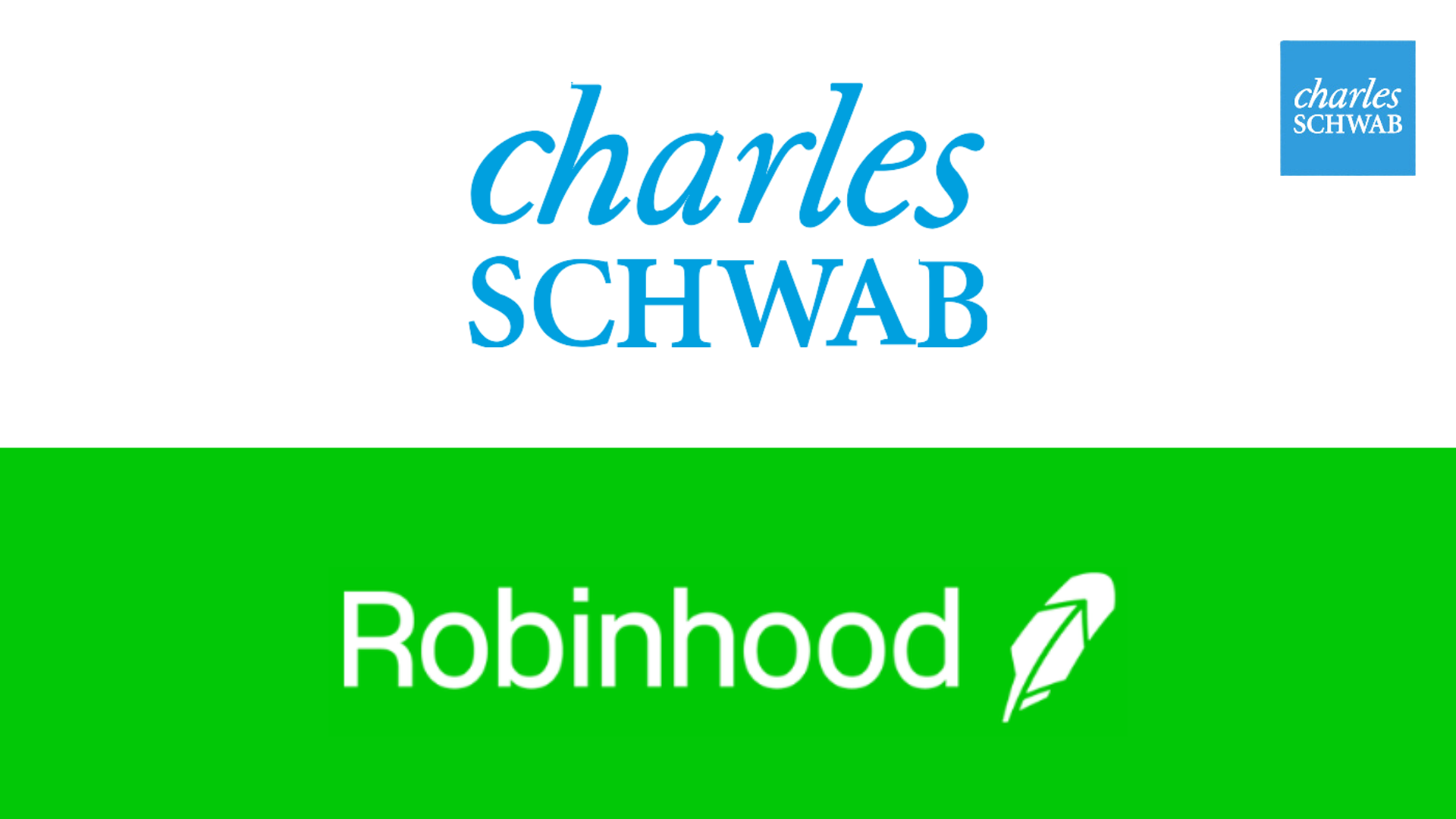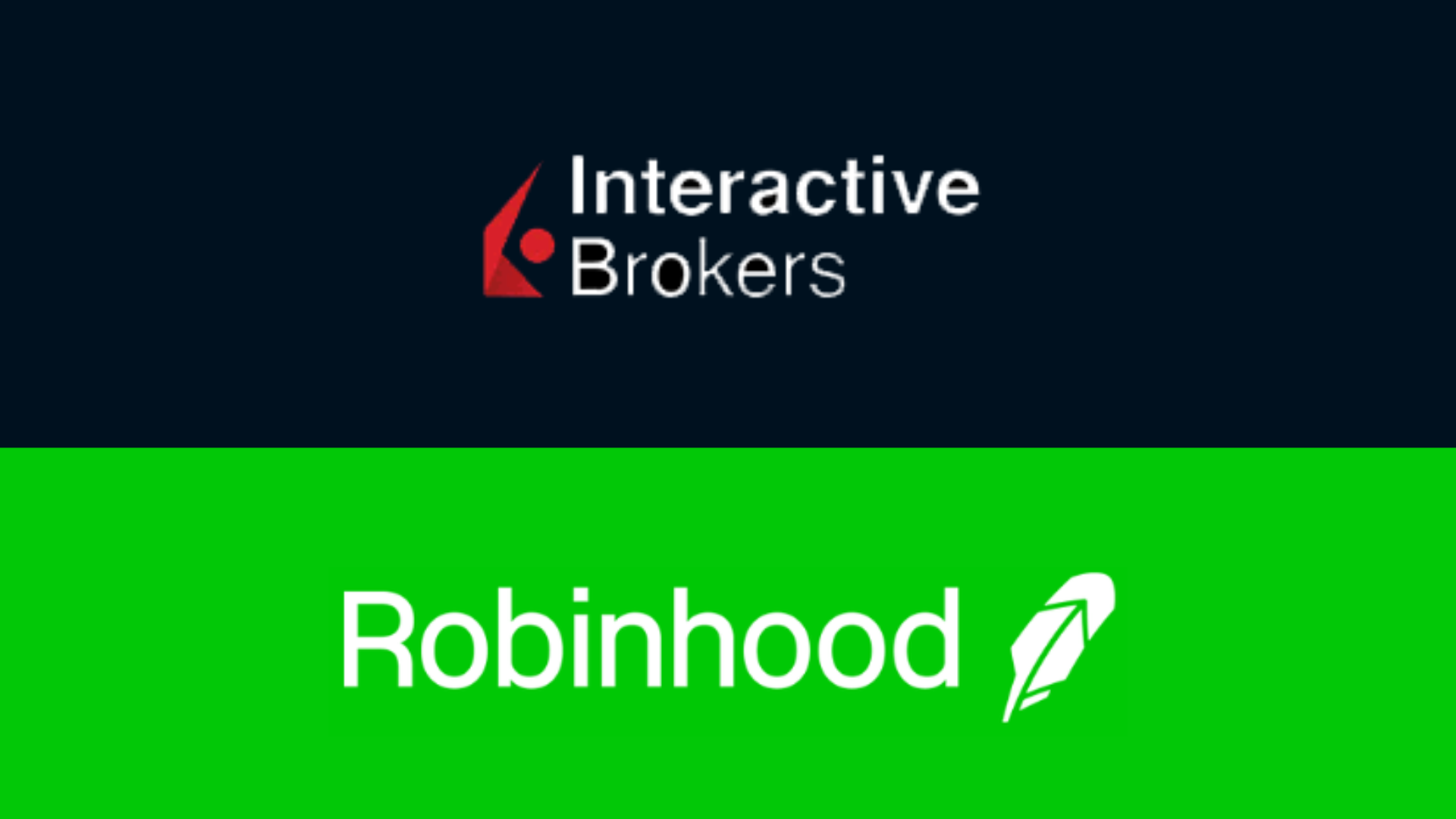Which investment platform should you use? Whether you’re new to investing and looking at exchange traded funds or you’re one of the advanced traders that’s been around the block a few times, you may be comparing Charles Schwab vs Robinhood and wondering if either option is right for you in your investment journey.
Charles Schwab is a respected name in the financial sector, with decades of experience serving investors at every level. Robinhood is a relative newcomer. Each platform has its unique features and benefits, and each appeals to an audience of investors—although not necessarily the same audience.
In this Schwab vs Robinhood review, we’ll cover everything you need to know to decide which platform is best to help you achieve your investment goals. We’ve included details about each company, with detailed information about features, fees, the user experience, and which type of investor is most likely to benefit from using it.
By the time you’ve finished reading, you’ll be able to evaluate the facts and make a choice about whether you want to use Robinhood or Charles Schwab as an investment platform.
Overview of Charles Schwab and Robinhood
Before we get into the details of what Robinhood and Charles Schwab have to offer, let’s review each company’s history and get an overview of what you should expect.
Charles Schwab
Charles Schwab Corporation is based in the United States and was founded in 1971 by Charles R. Schwab. It’s a multinational financial company that offers a broad array of services, including:
- Banking
- Commercial banking
- Investment services
- Wealth management
Over the years, the company has made a number of notable acquisitions, with the most recent being their purchase of TD Ameritrade in October of 2020. They also recently moved their headquarters from San Francisco, CA, to Westlake, TX.
All investing involves risk, but as of December of 2024, Charles Schwab has $9.74 trillion in assets under management, making it one of the largest and most influential brokers in the world. The company is a member of FINRA and regulated by the SEC.
Robinhood
Compared to Charles Schwab, Robinhood is a relative newcomer in the world of investing. The company is a licensed broker-dealer and a member of the SIPC.
Robinhood Markets, Inc. was founded in 2013 by Vladimir Tenev and Baiju Bhatt in Menlo Park, California. The mobile trading app for which the company is best known was launched in early 2015 with a waiting list of about 214,000 investors.
When the app first launched, Robinhood users could invest only in stocks and ETFs. By the time they announced that they’d be adding cryptocurrency, they had accumulated a wait list of two million people, and had the same number waiting for the launch of their crypto wallet.
The thing that sets Robinhood apart is that it was the first commission-free trading app. It’s designed to be easy to use and approachable for beginner investors.
Pro Tip:
Sign up with Robinhood today! You can refer friends to earn up to $1500 per year in FREE STOCK!
| Charles Schwab | Robinhood | |
| Assets available | Stocks, ETFs, bonds, mutual funds, money market funds, options, index funds, Forex, cryptocurrency ETFs, futures, and more. | Stocks, ETFs, options, cryptocurrencies, and ADRs. |
| Cryptocurrencies available | Exposure to cryptocurrency through ETFs and mutual funds; no cryptocurrency spot trading. | 20 |
| Mobile app features | Price alerts; charting; options alerts; trade tickets; digital and video references for learning | Stock, ETF, and crypto trading; limited charting; mobile learning center; 24/7 customer support. |
| Robo advisor? | Yes | No |
| Access to human advisors | Yes | No |
Costs and Fees Comparison
Both Schwab and Robinhood charge fees, and it’s important to understand what the true cost of using each platform will be before you choose one to try.
We’ll start with Schwab. Here’s how their fees break down.
- 0% commission for online trades
- $25 service fee for broker-assisted trades
- $0.65 trading fee for options
- US OTC equities: $6.95 fee
- $2.25 per contract for futures and future options
- Mutual funds: up to $74.95 per purchase
- Spread fee applies to Forex
- $6.95 fee for trades on the Canadian Stock Exchange
- $50 foreign transaction fee
- Secondary trades including CDs, bonds, government agencies and others have a fee of $1 per bond with a $10 minimum and a $250 maximum
In addition to these fees, there will be regulatory fees that are passed on to you. Service fees may also apply to certain trades if they’re broker assisted. You can find Schwab’s full fee table here.
Robinhood’s fee structure isn’t as extensive because there are fewer asset classes available and no broker assistance. Here’s how it breaks down.
- 0% commission for online and mobile trades
- $0.50 per options contract ($0.35 for Robinhood Gold members)
- Margin trading fees range from 6% down to 4.95% based on volume
- Outgoing wire fee is $25
- Outgoing ACAT fee is $100
Here again, regulatory fees apply. All fees are disclosed at the time you make a trade. View all the details here.
Pros and Cons of Charles Schwab vs Robinhood
Here are some pros and cons of each platform to consider, starting with Charles Schwab.
Pros
- Comprehensive investment options include stocks, ETFs, bonds, mutual funds, cryptocurrency assets, futures, Forex, and much more.
- Commission-free online trading
- Flat fee of $25 for broker-assisted trades
- SchwabSafe security suite
- Trade online or via mobile app
- Option to self-direct investments, use the robo advisor, or work with a broker
Cons
- Overall, fees are higher than Robinhood and some other trading apps
- The user experience is not as intuitive as it could be
- Cryptocurrency spot trading is not available
- No crypto wallet
- Low interest rate on uninvested cash
Here are some of the pros and cons of Robinhood for you to consider.
Pros
- User-friendly interface ideal for beginners
- Commission-free trades
- Can trade stocks, ETFs, and 20 different cryptocurrencies
- Customer support is available 24/7
- State-of-the-art security measures
- IRA matching funds (1% for free users, 3% for Robinhood Gold)
Cons
- Bonds, mutual funds, and other asset classes that are useful for diversification are not available
- No robo advisor or brokerage support is available
- Limited charting and investment tracking options
Pro Tip:
Sign up with Robinhood today! You can refer friends to earn up to $1500 per year in FREE STOCK!
Schwab vs Robinhood: User Experience Comparison
One of the most important things to consider when choosing an investment service is what it will be like to use it. Here’s our breakdown of the user experience for each.
Charles Schwab has received mixed reviews from users. Many praise the fact that it’s a “real” brokerage, although it’s worthwhile to remember that Robinhood is also a registered broker-dealer. Praise is mostly related to the number of assets available. Some users have complained that it’s more difficult than it should be to withdraw money. We think the interface is good, but maybe not ideal for beginners.
Robinhood has put a lot of time and money into creating an optimal user experience. Both the online and mobile platforms feature streamlined menus that make it extremely easy to initiate and complete trades. The ease of use and low fees are often praised in reviews. The most common complaints include sometimes-slow support response times and the lack of diverse assets to simplify portfolio balancing.
Which Platform is Right for You?
On the whole, we feel that Robinhood is the clear winner for beginning investors. Its streamlined interface and intuitive platform are ideal for people who are just getting started with investing and want to be able to jump in and start trading right away.
Robinhood might not offer the same number of assets for trading as Charles Schwab, but it’s easier to use. Once your account is set up, you can start trading immediately.
If you’re a more experienced investor and you want access to diversified investments including bonds, mutual funds, and Forex, then Charles Schwab is probably the better choice for you. While beginners may be overwhelmed by the choices, those who are serious about investing will get better results from Schwab.
Pro Tip:
Sign up with Robinhood today! You can refer friends to earn up to $1500 per year in FREE STOCK!
Conclusion
When you’re looking for an investment platform to use, you should consider your experience level, investment interests, costs, and the overall user experience of each platform.
As a beginner, it’s easy to get your feet wet and start trading with Robinhood. Their interface is so intuitive that even someone who’s never invested before can jump in and start trading right away. More experienced investors will appreciate Charles Schwab’s wider array of investment options and portfolio management tools.
FAQs
We think Robinhood is the better choice for beginners thanks to its intuitive interface and streamlined user experience. It doesn’t offer as many trading options, but users can start simple and work their way up to more complex trades.
Robinhood doesn’t charge hidden fees, but it can be difficult to determine how much a trade will cost beforehand. The good news is that Robinhood will disclose all fees to you in the trade box and you can review them before you finalize a trade.
Yes, both platforms are safe to use. Both use encryption, two-factor authentication, and other security measures to make sure that users’ assets and deposits are protected. Also, both Robinhood and Charles Schwab have insurance.





